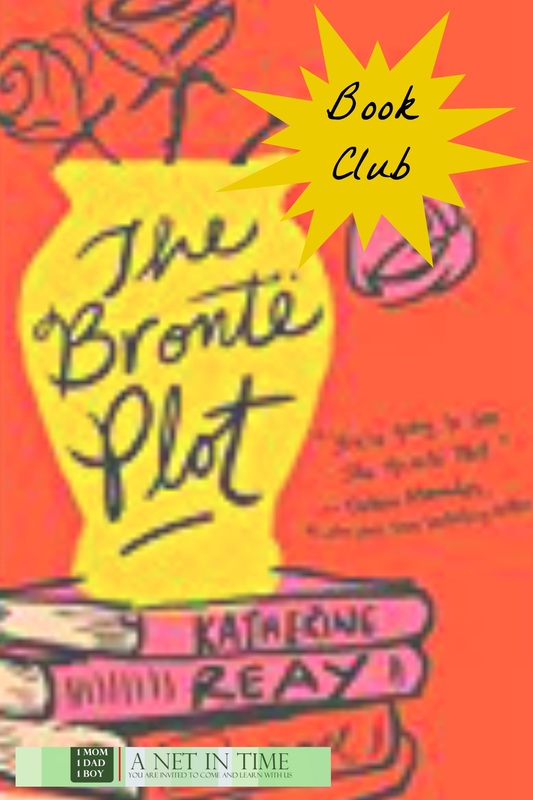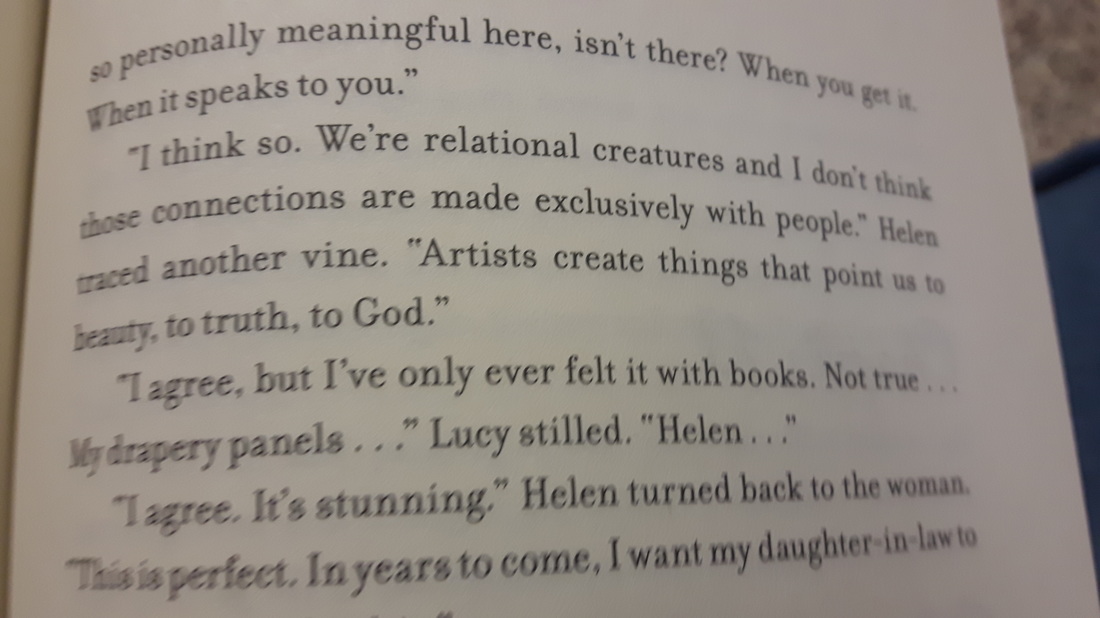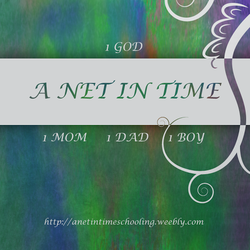I used to go to a book club and stopped because 1. they read weird books 2. the discussion quite frankly went over my head sometimes and 3. the timing wasn't working anymore.
I haven't had that with The Bronte Plot, I've actually quite enjoyed it.
The Lewis quote at the front of the book describes an aspect of Lucy at the beginning of this story. Why do you think she’d lost the power to enjoy books? Is there something in our lives that we can fail to see clearly and lose enjoyment for?The Lewis quote is this: Did you ever know a lover of books that with all his first editions and signed copies had lost the power to read them? Lucy lost the power to enjoy books because they became the story about them became more important than the story itself. And that happens sometimes, you can romanticize a figure or a story or a place so much that you fail to see what is right in front of your face.
Sid is one of the author’s favorites. What character trait do you think she found so attractive? She doesn’t tell you a lot about his background—any thoughts as to his story?
Sid is a gentle quiet soul with a surprising depth to him. I won't suppose his story, but he strikes me as one of those tall, mournful souls that sees into the heart of a person and that's all that matters...not all the business that surrounds it. Just the heart matters.
Was James justified in feeling so hurt when he found the forged inscription? How did he perceive Lucy’s struggle? Was it a betrayal, like he claimed?
Well yah. He paid for it believing it to be genuine. To feel hurt or angry would be a normative thing to feel. I suppose if you are in a relationship with someone such an ac would seem like a betrayal... or at least a theft. A betrayal as he claimed...they were two people, who at the time felt a connection but weren't truly in a relationship yet, so not sure that it's a betrayal except she never told him. He just kinda found out and well..not good.
Why did Helen hold on to the watch? Was she really afraid to let go? What did it cost her along the way?
I have to admit, not sure how to answer this question. Why hold on to it? It's youth and daring and first love. And holding on to that is sometimes very important. Letting it go meant living with the decisions one has made and sticking to them. Not sure that it cost her to let it go... what it did was release her to live with her decisions.
You can boil a frog if you slowly change the temperature of the water, so slowly that the frog doesn't know it. Likewise you can mold or change a person if you make the changes slowly enough they don't know it... even dangerous changes. You can see it from the outside, but when you are in the pot, you can't always see it.
Do you agree with Lucy that each person has his or her own worldview? How did hers change? How did James’? Helen’s?
Of course people all have their own worldview. It can change when your perspective or life experiences help you re-evaluate what you held to be true. For instance a non-believer will adapt a Christian worldview IF they become a believer. A person who highly respects the law and is a law-abiding citizen may revamp their worldview when they see the legal system doing what it shouldn't be doing. A young criminal, with the help of other people, change his view on possession and ownership. Worldviews change and adapt as we mature as people.
How do you think Helen’s journey will affect her final days with her family?
If Helen lets go of her past, if she remembers the good days, and the harder days and releases it to live completely in the here and now... then yes, those final days will be different. People will see it in her.
This story is one of choices. How do you see them playing out with each character? In your own life? Are the choices not made as powerful as the ones we consciously make? Is there a difference between them?
Choices made, or not made always affect us. From how we respond when we accidentally walk out of the store with something unpaid for nestled in a pocket. Not a deliberate choice at the time, but how one responds after IS a deliberate choice. One can choose to correct a child for a minor detail, or let it go. One can watch ones tone in conversation or one can not. Choices always matter, some more than others though eh? :) Each of these characters wrestled with choices.
- Helen in letting go of the past and making it right.
- Lucy in figuring out how to correct the wrongs she had done and how to make it right, how to stay true to what she truly wanted, and seeing people for who they are.
- James... to see what he truly wanted to be, as opposed to his family's expectations.









 RSS Feed
RSS Feed



